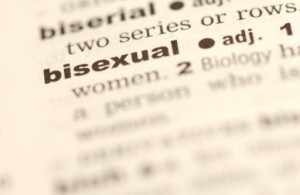Choosing to Be Gay
Cynthia Nixon (perhaps best known as Miranda from Sex and the City) recently told a reporter for The New York Times that in her experience, being gay is a choice. And that to dismiss the possibility that someone would actually choose to be gay is to somehow pander to all the homophobes out there who think homosexuality isn’t worthy.
“Why can’t it be a choice? Why is that any less legitimate?” Nixon said in the interview. “It seems we’re just ceding this point to bigots who are demanding it, and I don’t think that they should define the terms of the debate. I also feel like people think I was walking around in a cloud and didn’t realize I was gay, which I find really offensive. I find it offensive to me, but I also find it offensive to all the men I’ve been out with.”
Does she have a point?
Even prior to the modern gay rights movement, researchers like Alfred Kinsey have suggested that there’s a sliding scale when it comes to attraction (and most people fall somewhere in the middle). But for someone like Nixon – who’s publicly dated both men and women – does it make more sense to identify as bisexual rather than gay or lesbian?
For plenty of gay and straight folks alike, sexual identity isn’t always quite so fluid as it may have been for Nixon. If it was, wouldn’t a gay man, for example, being arrested in Iran for being gay give the straight life a go? Social norms (and pressure) can dictate whether or not someone entertains the idea of being with someone of the same-sex, but for many people – the verdict won’t change. And they’ll tell you they were either born gay – or not. Whether is takes awhile to come out – or whether a person ever really accepts it is a whole other story. But when someone is truly being honest with him or herself, there’s no denying human attraction.
If you have any doubts, try asking a straight friend whether he or she chose to be heterosexual. Ask them about the first time they knew they were attracted to the opposite sex and what that felt like. It’s the kind of inquisition that LGBT folks regularly experience in hopes of getting to the bottom (pardon the pun) of not being straight. If you have any doubts, just watch the GOP debates where offering up a homophobic rant about family values and big, bad gay people pretty much guarantees applause. Heck, if it wasn’t for gay people, Rick Santorum would scarcely have a platform.
But for the LGBT community, justifying rights at a critical time in American history has come down to proving that being gay is in the genes. And that stands to reason for many people. For someone like Nixon, however, and others who may identify as being, say, bisexual, there could be a genetic explanation for that, too. Sexual orientation isn’t a one-size-fits-all model. And while some people within the community may have been “born that way,” still others may take a different road. Does it mean we don’t all have commonalities or that we all shouldn’t be accepted? Of course. But the last thing anyone needs (and one that will prove to hold back the rights movement) is for gays and lesbians to somehow poo-poo the idea that for some people, sexuality could be more of a choice. And a good one at that.
There’s been plenty of backlash over bisexuality – as it it symbolizes the ultimate pass when things get a little too challenging. But anyone who is bisexual or knows someone who is bisexual should also know it’s just as natural as the next qualifier we all insist on flinging upon each other. But it also means that if someone wants to get serious about a relationship in a conventional way – whether it’s with a man or woman – that it also means making a choice.
We choose every day: to be monogamous or not. To date or not. It stands to reason that for people who are afforded the choice between being with a man or woman, that they should be accepted, too. The burgeoning queer movement is proving that there is no one definition of being gay or even conforming to gender. We can all learn something from that.
Or maybe we should just call it what it is: sexual preference.



